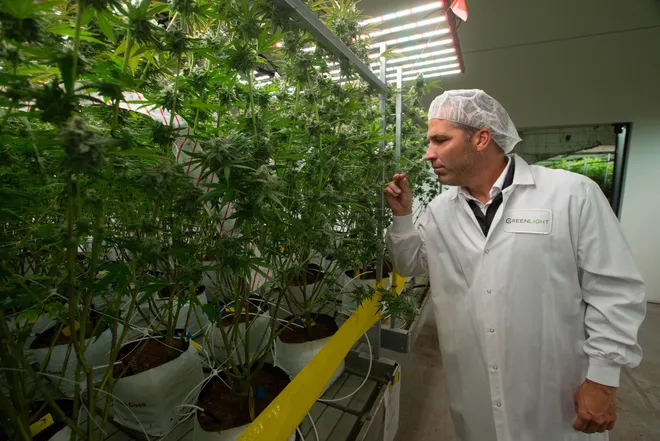Weed in Osmaniye: An Emerging Issue

Osmaniye, a city located in the southern part of Turkey, is known for its rich history, agricultural landscape, and its close proximity to other major cities like Adana and Gaziantep. Over the years, Osmaniye has seen considerable economic growth and urban development. However, like many cities in Turkey and around the world, it is also facing the challenges brought about by drug use, particularly the rising issue of cannabis, or weed on weed in Osmaniye.
Cannabis is illegal in Turkey, yet its use has been increasing in urban areas, including Osmaniye. Understanding the causes behind this trend and its consequences is key to addressing the issue effectively on weed in Osmaniye.
The Rising Popularity of Cannabis in Osmaniye
Several factors have contributed to the increase in cannabis use in Osmaniye. As in many other regions, the urbanization and modernization of the city have led to changes in lifestyle, social pressures, and a sense of anonymity that has made illegal substances like cannabis more accessible. Youths and young adults, especially those facing economic hardships, social pressures, or personal challenges, often turn to cannabis as a means of escaping or coping.
Cannabis is seen by some as a “soft” drug, less harmful than other illegal substances. This perception has led many to believe it is relatively safe, even though its use carries significant health risks.
The Influence of Social Circles and Peer Pressure
The impact of social circles and peer pressure cannot be overlooked when discussing cannabis use in Osmaniye. As with many other cities, Osmaniye’s younger population often seeks acceptance and belonging from their peers.
Young people in Osmaniye may not always be fully aware of the long-term consequences of cannabis use. They may view the drug as a harmless way to relax or enjoy a good time, often underestimating the negative effects it can have on both their physical and mental well-being. Peer pressure can be a significant driver for experimentation with cannabis, with individuals often using it to feel accepted by their social group.
The Health and Social Impacts
Cannabis use in Osmaniye, as in other parts of Turkey and around the world, has been linked to several health concerns. Despite being commonly considered a relatively harmless drug, cannabis has various side effects, particularly when used over an extended period. One of the most common risks is the potential for dependency. Though cannabis is less addictive than some other drugs, prolonged use can lead to a psychological addiction, making it difficult for individuals to stop using it.
In addition, cannabis use can impair cognitive functions, including memory, attention, and learning abilities. This impairment can have long-term consequences for academic performance, career prospects, and overall life satisfaction. For students and young adults in Osmaniye, cannabis use can lead to difficulties in focusing on schoolwork or holding down a steady job, as the drug can affect motivation and the ability to concentrate.
The mental health implications of cannabis use are also significant. Long-term use has been linked to an increased risk of developing mental health issues such as anxiety, depression, and psychosis. For many individuals in Osmaniye, stress and social isolation may drive them toward cannabis as a form of self-medication. However, this can worsen underlying mental health conditions, leading to a vicious cycle of drug use and deteriorating well-being.
Addressing the Issue: Prevention and Support
To address the growing concern of cannabis use in Osmaniye, it is crucial to focus on both prevention and support. Education plays a key role in helping young people understand the risks associated with cannabis use. Schools, community centers, and local organizations in Osmaniye can collaborate to educate students and their families about the dangers of drug use. These programs should focus on providing accurate information, debunking misconceptions about cannabis, and offering alternative coping strategies to handle stress and pressure.
Mental health services and counseling support are also essential in addressing the root causes of drug use. Many young people who turn to cannabis do so as a way to deal with anxiety, depression, or stress. By offering accessible mental health services, Osmaniye can provide individuals with the tools they need to cope in healthier ways.
Moreover, local law enforcement agencies must continue their efforts to combat the illegal distribution of cannabis and other drugs. Increased vigilance and community cooperation can help reduce the availability of cannabis in Osmaniye, making it harder for individuals to obtain it.
Conclusion
Cannabis use in Osmaniye, as in many other cities, is an issue that requires a multi-faceted approach. Education, mental health support, and stricter law enforcement are all necessary to address this growing concern. By working together, local authorities, community organizations, and families can help reduce cannabis use and its associated risks, ensuring a healthier and safer environment for the residents of Osmaniye, particularly the younger generations.

When it comes to marijuana products, ScentHub offers an extensive selection of some of the highest quality items I’ve come across. I’ve tried a variety of strains, edibles, and concentrates, and the quality has consistently been outstanding. The flowers are always fresh, fragrant, and potent. I’ve had the chance to try both Sativa and Indica strains, and the effects have been exactly as described. Contact them on email: Scenthub43@gmail.com and also there Telegram : t.me/Scenthub43
Wow they have an option for me. The variety in their selection means that no matter my experience level, I’ll find a product that fits my needs. highly recommended .

I can say without hesitation that ScentHub has earned my loyalty. From the quality of the products to the exceptional customer service.
“I was struggling with insomnia, and they found the perfect edible for me, Thank you”
Mine helped my dad find a tincture for his arthritis, highly recommended.
You’ve helped me smile again.